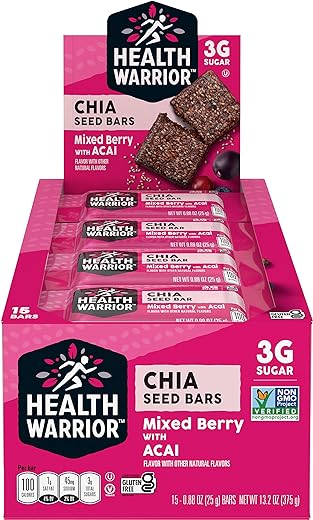Did you know that a single cow can produce as much greenhouse gas in a year as a car? That shocking fact is just the tip of the iceberg when it comes to understanding the impact of animal agriculture on our planet. As more people become aware of the connection between their food choices and sustainability, the interest in plant-based proteins is on the rise.
In this blog post, explore with me the world of plant-based proteins as a nutritious, eco-friendly alternative to animal proteins. Discover how incorporating plant-based proteins into your diet not only benefits your health but also plays a part in creating a more sustainable future for all. Let’s break down the myths and misconceptions surrounding plant-based proteins and learn how they can power your body while being kind to the planet.
Top Picks for Nourishing Your Body and Mind
What Are Plant-Based Proteins?
Definition
Plant-based proteins come from plant sources and are an alternative to animal proteins. These proteins are derived from vegetables, grains, legumes, nuts, seeds, and soy products.
Popular Sources
- Legumes: Examples include chickpeas, lentils, and black beans.
- Nuts & Seeds: Almonds, chia seeds, and pumpkin seeds are excellent sources of plant-based proteins.
- Soy Products: Tofu, tempeh, and edamame are common soy-based protein sources.
Benefits of Plant-Based Proteins
1. Improved Digestion
- Easier to digest than animal proteins.
- May alleviate digestive issues such as bloating and indigestion.
2. Lower in Saturated Fat
Plant-based proteins are naturally low in saturated fat, reducing the risk of heart disease and high cholesterol levels.
3. Rich in Fiber
- High fiber content improves gut health.
- Makes you feel fuller for longer, aiding in weight management.
4. Environmentally Friendly
Compared to animal agriculture, plant-based proteins have a significantly lower environmental impact, making them a sustainable choice.
5. Versatility
Can be used in a variety of dishes, catering to different tastes and preferences easily.
Incorporating plant-based proteins into your diet can lead to significant health benefits and positive environmental impacts. Next time you’re meal planning or grocery shopping, remember to choose plant-based protein sources!
Remember: plant-based protein doesn’t mean sacrificing taste or variety in your meals. Explore different cuisines, recipes, and products to discover a world of delicious plant-based protein options.
Nutritional Value of Plant-Based Proteins
Are you looking to incorporate more plant-based proteins into your diet but unsure about their nutritional value compared to animal proteins? Let’s delve into the benefits and dispel common misconceptions surrounding plant-based protein sources.
Protein Content:
- Plant-based proteins can be just as rich in protein as animal proteins. For example, a 3-ounce serving of tofu contains around 10 grams of protein, similar to that of chicken.
Essential Amino Acids:
- Contrary to popular belief, plant-based proteins can provide all the essential amino acids our bodies need. Quinoa, for instance, is a complete protein containing all nine essential amino acids in adequate amounts.
Other Nutrients:
- Plant-based proteins are also packed with essential nutrients. They often offer more fiber, vitamins, and minerals compared to animal proteins. Ground flaxseed, known for its omega-3 fatty acids and high fiber content, is a great addition to smoothies or yogurt bowls.
Comparing Plant-Based and Animal Proteins:
| Protein Source | Protein Content | Essential Amino Acids | Other Nutrients |
|---|---|---|---|
| Almonds | 6 grams per ounce | Good source of B vitamins | Rich in Vitamin E |
| Quinoa | 8 grams per cup cooked | Complete protein source | High in iron and magnesium |
| Lentils | 18 grams per cup cooked | High in fiber, folate, iron | Provides energy and aids in blood cell formation |
Some commonly misunderstood points about plant-based proteins:
- Not Enough Protein: Many plant-based sources, like lentils and chickpeas, offer ample protein.
- Missing Amino Acids: Combining different plant proteins throughout the day can ensure you get all essential amino acids.
- Inferior Quality: Plant-based proteins are easily digestible and promote heart health due to their lower saturated fat content.
Incorporating a variety of plant-based proteins into your meals can not only meet your protein needs but also boost your overall health with added vitamins and minerals. Try incorporating them in delicious recipes like chickpea curry or tofu stir-fry to reap the nutritional benefits they offer.
Plant-Based Proteins: A Healthier Choice for You
Plant-based proteins have gained popularity in recent years due to the numerous health benefits associated with their consumption. Let’s examine why opting for plant-based proteins over animal sources can significantly boost your overall well-being.
Improved Heart Health
- Reduced LDL Cholesterol: Plant-based proteins have been shown to help lower LDL (bad) cholesterol levels, decreasing the risk of heart disease.
- Existing Research: A study published in the Journal of the American Heart Association found that replacing animal protein with plant sources is linked to a lower risk of coronary heart disease.
Optimal Weight Management
- Lower Caloric Density: Many plant-based proteins are lower in calories compared to their animal counterparts, making weight management easier.
- Filled v. Empty Calories: Plant-based proteins like beans and lentils not only provide essential nutrients but also keeping you feeling full longer.
Reducing Risk of Chronic Diseases
- Rich in Fiber and Antioxidants: Plant-based proteins are rich in fiber and antioxidants, which can help lower inflammation and decrease the risk of chronic diseases.
- Scientific Backing: A study published in Nutrients demonstrated that diets rich in plant proteins are associated with reduced risks of type 2 diabetes.
Making the Switch
When it comes to incorporating plant-based proteins into your diet, brands like Beyond Meat can be a convenient option for adding plant-based burgers and sausages that mimic the taste and texture of meat products. Additionally, pea protein powders such as OWYN offer a convenient way to boost your protein intake in shakes and smoothies without dairy or soy.
By choosing plant-based proteins, you can reap the immense health benefits they offer, such as improved heart health, better weight management, and a reduced risk of chronic diseases. Isn’t it time to make the switch for a healthier you?
Practical Tips for Incorporating Plant-Based Proteins
Incorporating plant-based proteins into your diet doesn’t have to be complicated or overwhelming. With a bit of planning and creativity, you can easily meet your protein needs while enjoying delicious meals. Here are some practical tips to get you started:
1. Add Legumes to Your Meals
- Swap meat for beans, lentils, or chickpeas in recipes like chili, soups, and salads.
- Try making a lentil bolognese or a black bean burger for a tasty protein-packed meal.
2. Experiment with Tofu and Tempeh
- Marinate and bake tofu or stir-fry tempeh with your favorite vegetables for a flavorful dish.
- Use crumbled tofu as a substitute for scrambled eggs or ground meat in dishes like tacos or casseroles.
3. Incorporate Nuts and Seeds
- Sprinkle chia seeds or hemp seeds on top of yogurt, oatmeal, or salads.
- Use almond butter or tahini in dressings, sauces, or smoothies for a nutty boost of protein.
4. Opt for Whole Grains
- Choose quinoa, buckwheat, or farro to add a complete protein source to your meals.
- Make a hearty grain bowl with vegetables and a tahini dressing for a balanced and satisfying meal.
Overcoming Potential Challenges
A common concern with plant-based diets is ensuring you get enough protein. However, by diversifying your food choices and being mindful of protein-rich plant sources, you can easily meet your needs. Here’s how to overcome potential challenges:
- Monitor your protein intake and aim to include plant-based sources in every meal.
- Combine different protein-rich foods throughout the day to ensure you get all essential amino acids.
- Consider incorporating a plant-based protein powder into smoothies or baked goods for an extra protein boost.
A plant-based diet can provide all the nutrients your body needs, including protein. By focusing on a variety of plant foods and being adventurous with your cooking, you can enjoy a wholesome and balanced diet that benefits both your health and the environment.
Embrace a Healthier Lifestyle with Plant-based Proteins!
In conclusion, plant-based proteins play a crucial role in both individual health and environmental sustainability. By embracing a diet rich in plant-based proteins, individuals can enhance their well-being while reducing their environmental impact. Consider stepping into a world of balanced nutrition and sustainable eating by incorporating more plant-based proteins into your daily meals. Embrace a healthier and more sustainable lifestyle starting today.
Everything you need to know about Health Foods!
Can a plant-based diet provide all the essential amino acids necessary for the body, and if not, how can one ensure they are getting a complete protein profile?
Yes, a plant-based diet can provide all the essential amino acids necessary for the body when planned correctly. While individual plant-based foods may not contain all nine essential amino acids in one single food item, combining different plant-based protein sources throughout the day can help you obtain a complete protein profile. Eating a varied diet that includes a combination of legumes, whole grains, nuts, seeds, and vegetables can ensure you get all the essential amino acids your body needs. By incorporating a wide range of plant-based foods, you can easily meet your protein requirements and maintain a healthy diet.
What role do plant-based proteins play in weight management and muscle building when compared to animal-based sources?
Plant-based proteins can be very beneficial for weight management and muscle building when compared to animal-based sources. They tend to be lower in calories and saturated fats, making them a great option to support weight loss or maintenance. Additionally, plant-based proteins are often rich in fiber which can help you feel full for longer periods and support healthy digestion.
In terms of muscle building, plant-based proteins can be just as effective as animal-based sources when consumed in adequate amounts. They provide essential amino acids necessary for muscle repair and growth. While some plant-based proteins may have lower levels of certain amino acids, a balanced diet with a variety of plant-based protein sources can easily fulfill your amino acid needs.
Lastly, plant-based proteins are often associated with a lower risk of chronic diseases such as heart disease, certain types of cancer, and diabetes when compared to diets high in animal-based proteins. This makes them a healthier choice in the long term for overall well-being. Making plant-based proteins a significant part of your diet can have benefits beyond weight management and muscle building, contributing to a healthier lifestyle overall.
What are some common misconceptions surrounding plant-based proteins, and how can individuals overcome these barriers when incorporating them into their diet?
Some common misconceptions surrounding plant-based proteins include the belief that they are incomplete or lower in quality compared to animal proteins, that they are not as easily digestible, and that it’s challenging to get enough protein from plant sources alone. However, it is essential to clarify that plant-based proteins can be just as nutritious and beneficial as animal proteins when consumed as part of a balanced diet.
To overcome these barriers when incorporating plant-based proteins into one’s diet, individuals can:
- Include a variety of plant-based protein sources such as legumes, beans, lentils, tofu, tempeh, nuts, seeds, and whole grains to ensure they are getting a complete amino acid profile.
- Pair plant-based proteins with complementary foods to enhance their nutritional value. For example, combining beans with rice or adding nuts/seeds to salads can create a more balanced protein intake.
- Explore plant-based protein options and recipes to expand the variety of flavors and textures in their diet. This can make the transition to more plant-based proteins more enjoyable and sustainable.
- Utilize plant-based protein supplements like pea protein, soy protein, or hemp protein powders for convenience and to boost protein intake, especially for individuals with increased protein needs such as athletes or active individuals.
What are the primary sources of plant-based proteins, and how do they compare to animal-based proteins in terms of nutritional value?
Plant-based proteins are abundant in sources like legumes (such as beans, lentils, and chickpeas), nuts, seeds, tofu, tempeh, and whole grains. These sources are not only rich in protein but also provide important nutrients like fiber, vitamins, and minerals.
In terms of nutritional value, plant-based proteins are often lower in saturated fats than animal-based proteins and also contain no cholesterol. They are also typically higher in dietary fiber and phytonutrients, which have various health benefits.
While animal-based proteins may contain all essential amino acids in specific ratios (considered complete proteins), a well-planned plant-based diet can also provide all essential amino acids by consuming a variety of plant protein sources throughout the day. Therefore, both plant-based and animal-based proteins have their unique benefits, and incorporation of a diverse range of protein sources in one’s diet is important for optimal health.


















Can you recommend specific plant-based protein brands or products that are high-quality and sustainable?
Certainly! Some reputable plant-based protein brands include Beyond Meat, Gardein, and Orgain. Be sure to check for certifications like Non-GMO Project Verified or USDA Organic for sustainable options.
This article mentions the health benefits, but can you provide more scientific studies supporting these claims?
There seems to be a lot of debate around the environmental impact of plant-based proteins versus animal proteins. Could you delve into this further?
Could you recommend some cookbooks focused on plant-based proteins?
I find it challenging to incorporate plant-based proteins into my meals. Any suggestions?
I struggle with digesting certain plant-based proteins. Any advice on addressing this issue?
Incorporating digestive enzymes or opting for fermented plant-based proteins might help with digestion. Consulting a nutritionist or dietitian could also provide personalized solutions.